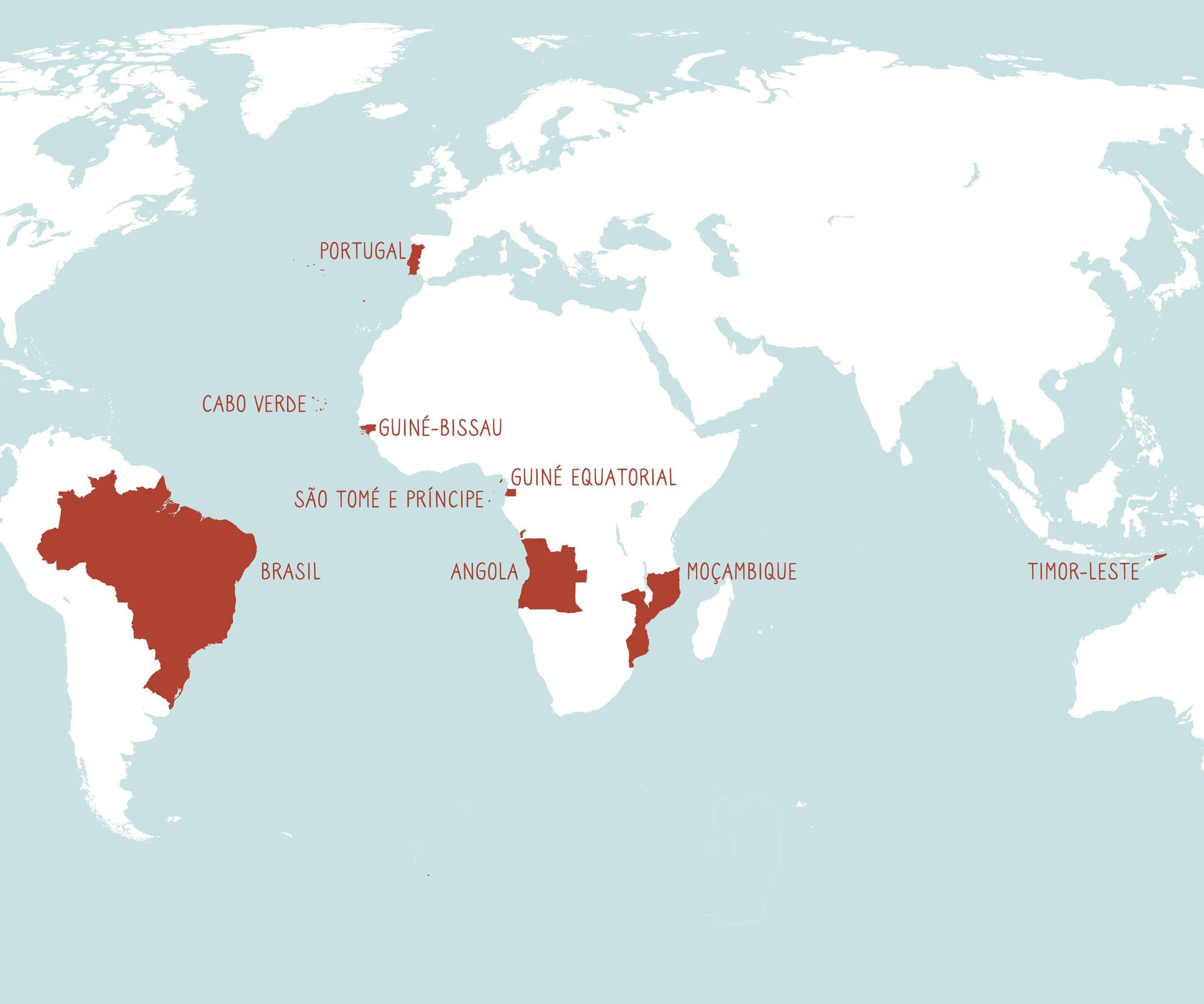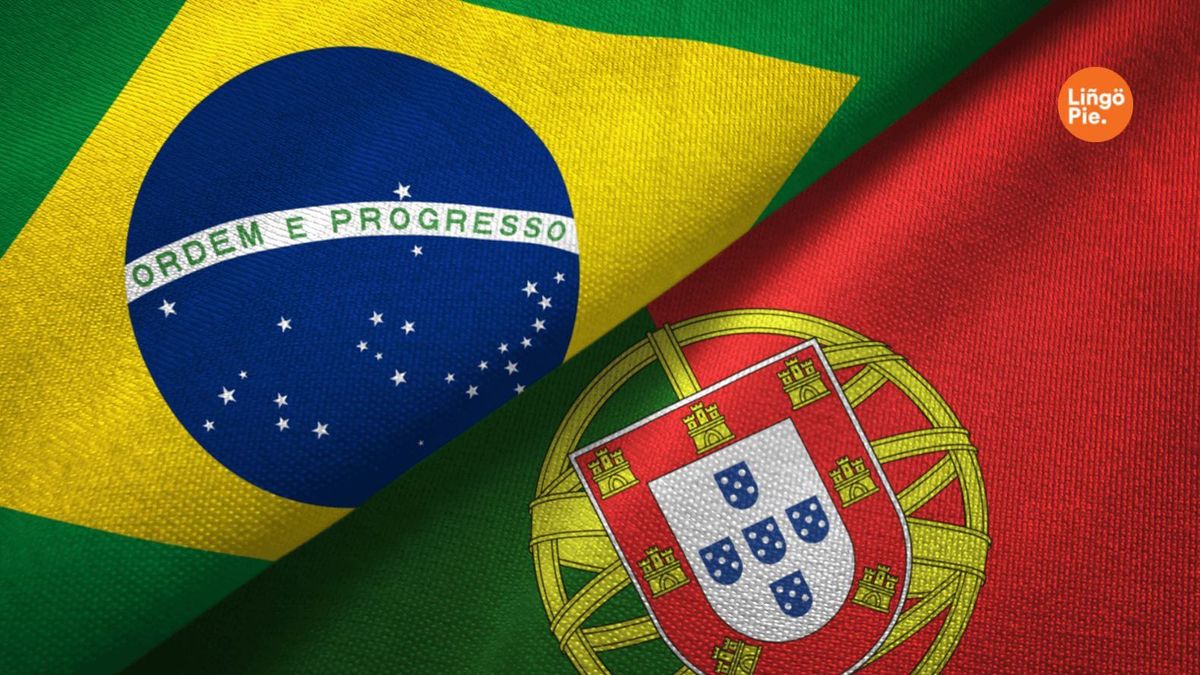Deciding to learn a new language is one of the best decisions you can make. It opens up all kinds of doors in your personal and professional lives — for traveling, socializing, doing business, and even living abroad.
But, with so many languages out there, how do you choose which one to learn? A natural choice for many people is Spanish. It’s the 4th most-spoken language in the world after all!
Another popular choice is Portuguese, which at least 250 million people speak worldwide (the majority of whom are in Brazil).
If you’re here, you’re at least considering learning Portuguese, and you’re probably wondering “how hard is Portuguese to learn?”
Keep reading to find out why Portuguese is a great choice for a new language to learn, how it compares to Spanish, and what one of the best ways to learn a new language like Portuguese is!

Is Portuguese Worth Learning?
As we already mentioned, Portuguese is one of the most widely-spoken languages in the world, mainly thanks to the large population in Brazil.
Though there are only about 10 million people in Portugal, the language’s mother country, you will also find large Portuguese populations and “Little Portugals” in other major European cities and big cities around the world.
Outside of Brazil and Europe, Portuguese is mainly spoken in Africa, in countries that were formerly Portuguese colonies. In fact, Angola is the second biggest Portuguese-speaking country, coming after Brazil and before Portugal.
The 10 Portuguese-speaking countries are:
- Angola
- Brazil
- Cape Verde
- East Timor
- Guinea Bissau
- Macau
- Mozambique
- Portugal
- São Tomé and Príncipe

So, depending on your future aspirations, Portuguese can definitely be a useful language to learn — there’s certainly no shortage of people who speak it!
Of course, if you do choose to learn Portuguese, you’ll have to decide whether you want to learn Brazilian Portuguese or European Portuguese. This decision mainly depends on how and where you plan to use the language.
Another great reason to learn Portuguese is that it’s a member of the Romance Language family (along with the other big ones: French, Spanish, Italian, and Romanian).
These languages share a common past: they originated from Vulgar Latin, or the Latin spoken by the common people in ancient Rome.
What’s great about learning Romance Languages is that they have many similarities in terms of vocabulary and grammar, so once you know one, it typically gets easier for you to learn others.
Finally, Portuguese is a great language to learn for cultural reasons. There are plenty of wonderful works of Portuguese literature, music, movies, and TV (more on that later) that you’re sure to appreciate more when you know the language.
Is Spanish or Portuguese Easier to Learn?
Spanish and Portuguese often get compared, which is fair considering that the countries share the Iberian Peninsula and have many historical ties.
But, is Portuguese Hispanic? “Hispanic” is defined as a person or thing originating from Spain or from a Spanish-speaking Latin American country, so Portuguese is technically not a Hispanic language.
However, both languages are Iberian, which is a generic term for all the languages spoken on the Iberian peninsula.
Other major Iberian languages spoken widely today include:
- Basque
- Catalan
- Galician
Many people considering traveling, working, or living in either South America or Europe find themselves making the hard decision between learning Portuguese and learning Spanish.
So, how hard is Portuguese to learn compared to Spanish?
If English is your first language and you’re trying to choose between Portuguese and Spanish for your second language, you can likely learn either one with relatively the same amount of difficulty.
If you already know Spanish, learning Portuguese will probably be much easier than it was for you to learn Spanish initially. This is because the languages share a lexical similarity of almost 90%, meaning that a very high number of the words in Spanish and Portuguese are similar.
Can a Portuguese Person Understand Spanish?
A Portuguese speaker and a Spanish speaker talking to each other at slow speeds may be able to recognize many words because of the high degree of lexical similarity between the two languages.
However, grammar, pronunciation, and accent are very different in Spanish and Portuguese, so they wouldn’t be able to carry on a fluent conversation.
If you only speak Spanish and you’re in Brazil or Portugal, you could probably get by and do things like order food in Spanish, but don’t expect to do much more than that.
Comprehension levels are much higher for a Portuguese person reading Spanish, and vice versa, because we’re removing the issues of pronunciation and accent. Similar words are way easier to recognize when you can see how they’re spelled!
The Easiest way to Learn Portuguese
If you’re sold on picking up Portuguese as your next language at this point, you might be wondering things like “how long does it take to learn Portuguese?” and “is Portuguese easy to learn on your own?”
That depends a lot on your style of learning, your methods, and your dedication and persistence. Things like classroom instruction and language apps are great for memorizing vocab and drilling grammar, but they only go so far.
Besides practicing Portuguese with native speakers, one of the best ways to learn Portuguese (or any language, for that matter) is to watch TV shows and movies in that language.
When you’re engaged watching a Brazilian TV show, for example, you’re learning Portuguese by context and absorbing all kinds of new words and phrases.
Before you know it, you’ve binge-watched an entire series and all of a sudden you can say things in Portuguese that you don’t learn from a textbook!
On Lingopie, we have thousands of hours of Brazilian TV shows with interactive subtitles, built-in flashcards and wordlists, and the option to watch them at slower speeds or with English subtitles.
Give Lingopie a shot and sign up for a free trial today — it’s totally risk free!






![5 Official Spanish Language Tests To Show Your Proficiency Level [Guide]](/blog/content/images/size/w300/2025/06/Spanish-Language-Tests.jpg)
![Why Memorizing Spanish Words Won’t Make You Fluent [Tips]](/blog/content/images/size/w300/2025/06/how-to-practice-spanish-vocabulary.jpg)
![How to Improve Your Polish Conversation Skills [5 Best Tips]](/blog/content/images/size/w300/2025/06/improve-polish-conversation-skills.jpg)
